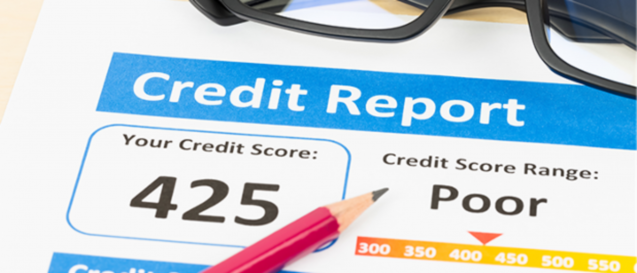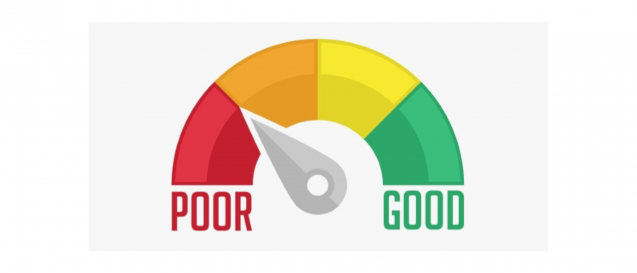
The Ultimate Guide to Debt Consolidation Loans: Consolidate Your Finances and Take Control of Your Debts
Are your debts starting to feel overwhelming? Are you struggling to keep up with multiple loan payments every month? If so, debt consolidation loans might be the solution you've been searching for.
In this ultimate guide, we will explore everything you need to know about debt consolidation loans and how they can help you regain control of your finances. From understanding the basics of debt consolidation to finding the right loan for your unique situation, we've got you covered.
Debt consolidation loans allow you to combine all your existing debts into a single loan, making it easier to manage and pay off over time. By consolidating your debts, you can potentially lower your interest rates, reduce your monthly payments, and simplify your financial life.
Throughout this guide, we'll walk you through the pros and cons of debt consolidation loans, provide tips on finding the best loan terms, and offer strategies to help you stay on track with your payments.
Ready to take control of your debts? Let's dive into the ultimate guide to debt consolidation loans.
How do debt consolidation loans work
Debt consolidation loans work by combining multiple debts into a single loan with a lower interest rate or more manageable repayment terms. Instead of making individual payments to various creditors, you only have to make one payment towards your consolidation loan.
When you apply for a debt consolidation loan, the lender will typically pay off your existing debts on your behalf. As a result, you'll no longer owe money to multiple creditors but instead have a single loan with a new repayment plan.
The interest rate on a debt consolidation loan is often lower than the rates on credit cards or other high-interest loans. This can save you money in the long run, especially if you have a lot of high-interest debt.
It's important to note that a debt consolidation loan is not a magic solution that erases your debts. You still have to repay the loan, but it provides a structured and potentially more affordable way to do so.
Benefits of debt consolidation loans
Debt consolidation loans offer several benefits that can help individuals struggling with multiple debts. Here are some of the key advantages:
There are several types of debt consolidation loans available, and the right one for you depends on your unique financial situation. Here are some common types of debt consolidation loans:
Before you apply for a debt consolidation loan, it's important to consider a few factors to ensure it's the right option for you. Here are some key points to keep in mind:
Qualifying for a debt consolidation loan depends on several factors, including your credit score, income, and debt-to-income ratio. Here are some steps you can take to increase your chances of qualifying for a debt consolidation loan:
Now that you understand the basics and have considered the factors involved, let's walk through the steps to consolidate your debts using a debt consolidation loan:
While debt consolidation loans can be an effective solution, they may not be suitable for everyone. Here are some alternatives to consider:
Consolidating your debts is just the first step towards financial freedom. Here are some tips to help you manage your finances effectively after consolidating your debts:
It's important to carefully consider your financial situation and weigh the pros and cons before deciding if a debt consolidation loan is right for you. Explore different loan options, evaluate the terms and costs, and ensure that you can comfortably afford the monthly payments.
Remember, a debt consolidation loan is not a one-size-fits-all solution. It's essential to choose the option that aligns with your unique circumstances and supports your long-term financial goals. With proper planning, discipline, and a commitment to financial responsibility, you can take control of your debts and pave the way towards a brighter financial future.
In this ultimate guide, we will explore everything you need to know about debt consolidation loans and how they can help you regain control of your finances. From understanding the basics of debt consolidation to finding the right loan for your unique situation, we've got you covered.
Debt consolidation loans allow you to combine all your existing debts into a single loan, making it easier to manage and pay off over time. By consolidating your debts, you can potentially lower your interest rates, reduce your monthly payments, and simplify your financial life.
Throughout this guide, we'll walk you through the pros and cons of debt consolidation loans, provide tips on finding the best loan terms, and offer strategies to help you stay on track with your payments.
Ready to take control of your debts? Let's dive into the ultimate guide to debt consolidation loans.
How do debt consolidation loans work
Debt consolidation loans work by combining multiple debts into a single loan with a lower interest rate or more manageable repayment terms. Instead of making individual payments to various creditors, you only have to make one payment towards your consolidation loan.
When you apply for a debt consolidation loan, the lender will typically pay off your existing debts on your behalf. As a result, you'll no longer owe money to multiple creditors but instead have a single loan with a new repayment plan.
The interest rate on a debt consolidation loan is often lower than the rates on credit cards or other high-interest loans. This can save you money in the long run, especially if you have a lot of high-interest debt.
It's important to note that a debt consolidation loan is not a magic solution that erases your debts. You still have to repay the loan, but it provides a structured and potentially more affordable way to do so.
Benefits of debt consolidation loans
Debt consolidation loans offer several benefits that can help individuals struggling with multiple debts. Here are some of the key advantages:
- Simplified payments: One of the biggest advantages of debt consolidation loans is that they simplify your monthly payments. Instead of juggling multiple due dates and amounts, you only have to worry about making a single payment towards your consolidation loan.
- Lower interest rates: Debt consolidation loans often come with lower interest rates compared to credit cards or other high-interest loans. This can save you money in the long run and help you pay off your debts faster.
- Reduced monthly payments: By consolidating your debts, you may be able to negotiate lower monthly payments. This can free up some of your monthly income and provide you with more breathing room in your budget.
- Improved credit score: If you've been struggling to make your payments on time, your credit score may have taken a hit. By consolidating your debts and making regular, on-time payments, you can start rebuilding your credit score over time.
- Streamlined financial management: With a debt consolidation loan, you have a clear picture of your debts and a structured plan to pay them off. This can help you regain control of your finances and reduce stress related to managing multiple debts.
There are several types of debt consolidation loans available, and the right one for you depends on your unique financial situation. Here are some common types of debt consolidation loans:
- Personal loans: Personal loans are unsecured loans that you can use for various purposes, including debt consolidation. These loans typically have fixed interest rates and repayment terms, making it easier to plan your budget.
- Home equity loans: If you own a home, you may be able to use the equity in your property to secure a loan for debt consolidation. Home equity loans for debt consolidation often have lower interest rates but come with the risk of losing your home if you fail to make payments.
- Balance transfer credit cards: Some credit cards offer promotional balance transfer rates, allowing you to transfer your existing high-interest credit card balances to a card with a lower interest rate. This can be a cost-effective option if you can pay off the transferred balance within the promotional period.
- Debt management plans: Debt management plans are not loans, but rather a program offered by credit counseling agencies. These plans involve negotiating with your creditors to lower your interest rates and create a repayment plan that works for you.
Before you apply for a debt consolidation loan, it's important to consider a few factors to ensure it's the right option for you. Here are some key points to keep in mind:
- Total debt amount: Evaluate your total debt amount to determine if a debt consolidation loan is a viable solution. If your debts are relatively small or manageable, consolidating may not provide significant benefits.
- Interest rates: Compare the interest rates on your existing debts with the rates offered for debt consolidation loans. If the consolidation loan offers a lower interest rate, it may be a good option for you.
- Repayment terms: Review the repayment terms of the consolidation loan. Ensure that the monthly payments and the overall loan duration are reasonable and fit within your budget.
- Fees and charges: Consider any fees or charges associated with the debt consolidation loan. These can include origination fees, closing costs, or prepayment penalties. Factor in these costs when determining the overall affordability of the loan.
- Impact on credit score: Understand how a debt consolidation loan may impact your credit score. While it can help improve your credit in the long run, the initial application may result in a temporary dip in your score.
Qualifying for a debt consolidation loan depends on several factors, including your credit score, income, and debt-to-income ratio. Here are some steps you can take to increase your chances of qualifying for a debt consolidation loan:
- Check your credit score: Before applying for a loan, review your credit report and score. If there are any errors or discrepancies, take steps to correct them. A higher credit score can improve your chances of approval and help you secure better loan terms.
- Improve your credit score: If your credit score is lower than desired, take steps to improve it. Pay your bills on time, reduce your credit card balances, and avoid taking on new debt. These actions can positively impact your credit score over time.
- Assess your income: Lenders will evaluate your income to determine if you can afford the loan payments. Ensure that your income is sufficient to cover your monthly expenses and the new loan payment.
- Calculate your debt-to-income ratio: The debt-to-income ratio is a measure of your monthly debt payments compared to your income. Lenders use this ratio to assess your ability to repay the loan. Aim for a lower ratio to increase your chances of qualifying for a debt consolidation loan.
- Gather necessary documentation: Prepare the necessary documentation, such as pay stubs, tax returns, and bank statements, to provide proof of income and financial stability to the lender.
Now that you understand the basics and have considered the factors involved, let's walk through the steps to consolidate your debts using a debt consolidation loan:
- Review your debts: Start by making a list of all your debts, including the outstanding balances, interest rates, and monthly payments. This will give you a clear picture of your financial situation and help you determine the loan amount you need.
- Research lenders: Shop around and compare different lenders to find the best terms and interest rates for your debt consolidation loan. Consider both traditional banks and online lenders to explore all your options.
- Gather necessary documents: As mentioned earlier, gather the necessary documents required by the lender. This may include proof of income, identification documents, and statements from your existing creditors.
- Apply for the loan: Submit your loan application to the chosen lender. Provide accurate and complete information to increase your chances of approval. Be prepared for a credit check as part of the application process.
- Evaluate loan offers: Once you receive loan offers, carefully review the terms, interest rates, and repayment plans. Consider the overall cost of the loan, including any fees or charges involved.
- Accept the loan offer: If you find a loan offer that meets your needs, accept it. Read and understand the loan agreement before signing, ensuring that you are comfortable with the terms.
- Pay off existing debts: Once your consolidation loan is approved and disbursed, use the funds to pay off your existing debts. Contact your creditors to ensure that the payments are properly credited and to confirm the closure of those accounts.
- Make regular payments: Going forward, make your monthly payments on time and in full. Set up automatic payments if possible to avoid any missed payments.
- Track your progress: Monitor your progress as you repay your debt consolidation loan. Keep a close eye on your budget and make adjustments as needed to ensure you stay on track.
While debt consolidation loans can be an effective solution, they may not be suitable for everyone. Here are some alternatives to consider:
- Debt management plans: As mentioned earlier, debt management plans offered by credit counseling agencies can help negotiate lower interest rates and create a repayment plan. This can be a viable option for those who prefer not to take on additional loans.
- Snowball or avalanche method: The snowball and avalanche methods are debt repayment strategies that prioritize paying off debts systematically. With the snowball method, you focus on paying off the smallest debts first, while the avalanche method prioritizes debts with the highest interest rates.
- Negotiating with creditors: If you're struggling to make payments, reach out to your creditors and explain your situation. They may be willing to work out a more manageable repayment plan or offer temporary relief.
- Bankruptcy: Bankruptcy should be considered as a last resort when all other options have been exhausted. Consult with a bankruptcy attorney to understand the implications and determine if it's the right solution for your situation.
Consolidating your debts is just the first step towards financial freedom. Here are some tips to help you manage your finances effectively after consolidating your debts:
- Stick to your budget: Create a realistic budget that allows you to cover your living expenses and debt payments. Stick to this budget to avoid falling back into debt.
- Build an emergency fund: Set aside some money each month to build an emergency fund. Having a financial cushion can help you avoid relying on credit cards or loans in the event of unexpected expenses.
- Avoid new debt: Resist the temptation to accumulate new debt after consolidating your existing debts. Be mindful of your spending habits and focus on paying off your consolidation loan.
- Seek professional advice if needed: If you're still struggling with your finances or need guidance, consider seeking help from a financial advisor or credit counseling agency. They can provide personalized advice and support.
- Monitor your credit report: Regularly review your credit report to ensure that all your debts and payments are accurately reported. Dispute any errors or discrepancies promptly.
It's important to carefully consider your financial situation and weigh the pros and cons before deciding if a debt consolidation loan is right for you. Explore different loan options, evaluate the terms and costs, and ensure that you can comfortably afford the monthly payments.
Remember, a debt consolidation loan is not a one-size-fits-all solution. It's essential to choose the option that aligns with your unique circumstances and supports your long-term financial goals. With proper planning, discipline, and a commitment to financial responsibility, you can take control of your debts and pave the way towards a brighter financial future.



